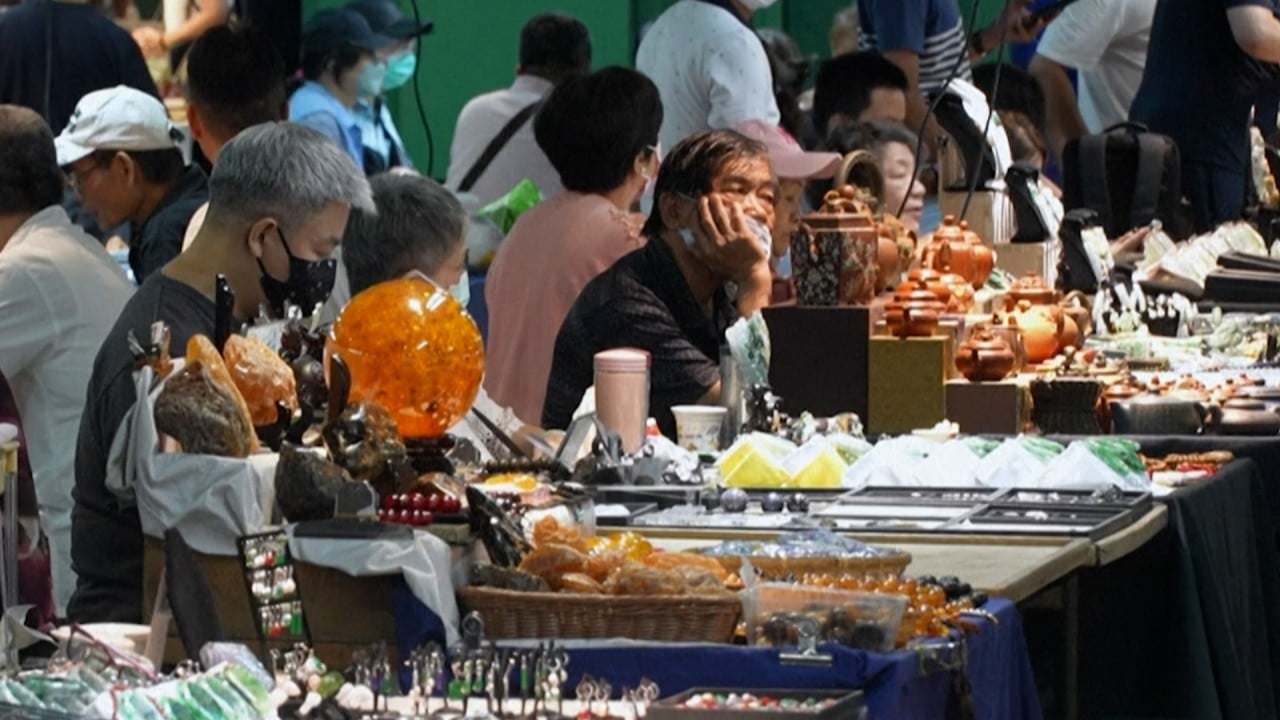Investigators will take until January 12 to wrap up “owing to the case’s complexity”, the ministry said in a statement on Monday. The earliest possible date for findings was October 12, half a year after the probe began.
The ministry is looking into Taiwan’s measures relating to the import of 2,455 textile, mineral and agricultural products from the mainland.
China fires trade probe across Taiwan’s bow. What will it mean for election?
China fires trade probe across Taiwan’s bow. What will it mean for election?
Mainland China sees self-ruled Taiwan as a breakaway territory that must be united with the mainland, by force, if needed.
“It has always had an undertone of a political measure,” said Joanna Lei, chief executive of the Chunghua 21st Century think tank in Taiwan. “The days are very carefully orchestrated.”
Mainland officials do not want the results out now, Lei said, in case the investigation “permeates” the election campaign and goes against their wishes.
Damage to the trade pact would undo a pivotal goodwill gesture that Beijing made in 2010 with then-president Ma Ying-jeou – a Kuomintang (KMT) politician who was succeeded by today’s president, Tsai Ing-wen, in 2016.
Mainland officials saw the pact as a gambit to improve cross-strait relations ahead of any discussion toward unifying the two sides.
Biden signs bill approving US-Taiwan trade agreement to boost economic ties
Biden signs bill approving US-Taiwan trade agreement to boost economic ties
Investigators might make an announcement days before the vote to maximise its impact, said Huang Kwei-bo, an associate professor of diplomacy at National Chengchi University in Taipei.
Tsai’s party is fielding a presidential candidate who takes a hard line on Taiwan’s relations with the mainland. The other major contenders take more conciliatory views.
Exports from the mainland to Taiwan reached US$84 billion last year, according to data from the Bureau of Foreign Trade in Taipei. Taiwan – mainland China’s sixth-largest trading partner according to official data in 2022 – exported US$185.92 billion the other way.
“If they do suspend ECFA, it’s a big [blow to] cross-strait relations,” Huang said.
Spokesman for the mainland’s Taiwan Affairs Office Chen Binhua told a September 13 news conference that his government had “kept a promise” for years to “protect” the implementation of ECFA. But he acknowledged the pact was facing scrutiny now.
“We support the study of suspending or partially suspending the tariff preferences granted to Taiwanese products under ECFA in accordance with relevant regulations,” Chen said.
Taiwan’s minister of economic affairs, Wang Mei-hua, has said that the probe should be discussed through the World Trade Organization (WTO), where the island has membership as a separate customs territory. Her ministry reiterated that position on Monday.
“Our side has kept an open stance all along and is willing to negotiate and resolve the case with China under the WTO framework,” the ministry said in a statement.



